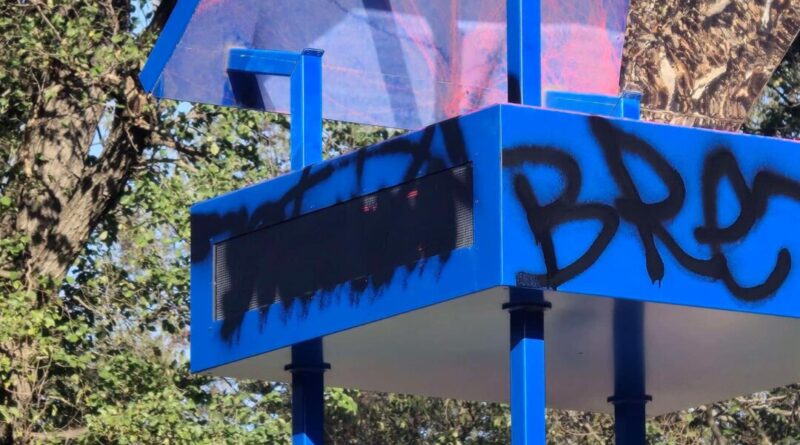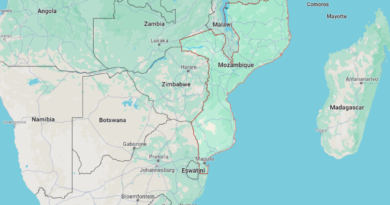Vandals target Victoria’s $18,000 Climate Change Doomsday Clock
A controversial $18,000 countdown clock said to mark the beginning of the end has been heavily graffitied.
A newly erected art installation in the Melbourne suburb of Fitzroy has been vandalised with graffiti.
The much-discussed artwork, titled Zone Red, is the creation of Melbourne artist and climate change campaigner Yandell Walton.
The artwork was first unveiled in November 2024.
The piece features a solar-powered clock, counting down the days until 2030, which is when the United Nations’ Intergovernmental Panel on Climate Change (IPCC) claims emissions will need to be cut by 45 percent in order to keep global warming below 1.5 degrees Celsius (2.7 Farenheit).
The work also includes an emissions map of the earth.
But over the weekend, the piece became the subject of graffiti, with the so-called doomsday clock blacked out entirely, while words were painted over the plinth.
The artwork reportedly cost the Yarra City Council $18,000 (US$11,000), and coincides with the council’s second Climate Emergency Plan, which was released in 2024 for the years until 2030.
“Zone Red confronts the urgent reality of climate change by visually embodying the countdown to a critical moment in our planet’s future,” Walton said on her website.
“A lot of my work looks at shifting landscapes due to human impact or ecological devastation,” she explained in a video about the project.
The plinth in Edinburgh Gardens where the clock sits once housed a statue of the late Queen Victoria.
Yarra City Council and Victorian police were contacted for comment.

The art installation in Edinburgh Gardens in Melbourne, Australia, was seen vandalised on Feb. 23, 2025. Henry Jom/The Epoch Times
Yarra Council’s Climate Plan
The Yarra City Council has a number of initiatives outlined in its Climate Emergency Plan up till 2030.
Some of the stipulations of the council’s framework for managing climate change include engaging an extra 10,000 people in Yarra to take action, mobilising the community to respond to the perceived emergency, accelerating the push for renewables and for all council buildings to be powered by renewable energy by 2030.
By 2040, the council aims to increase canopy cover for the municipality by 25 percent, up from the 2014 baseline of 17 percent.
Yarra City Council boasts being one of the first local governments in the world to declare a climate emergency.
Under its achievements, the council lists having introduced 30 and 40 kilometre speed limits for vehicles on many streets to better accommodate cyclists, as well as planting 800 to 1,000 trees annually.





